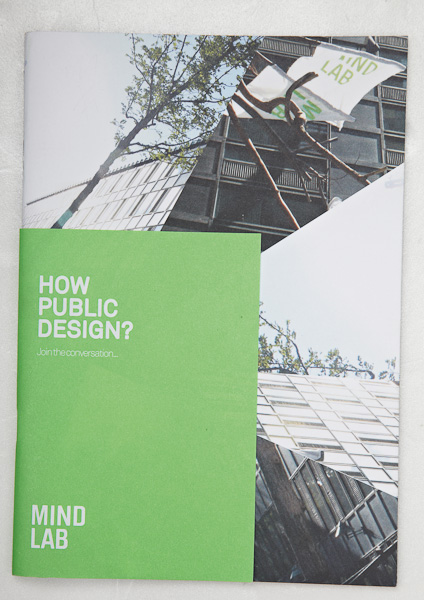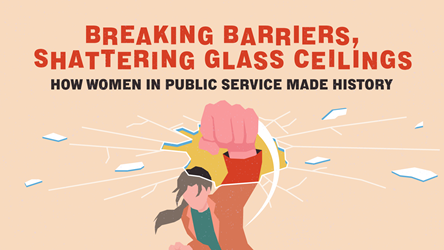Over Boundaries, into Citizens' Shoes

Helping young taxpayers make sense of a tricky system; assisting young victims of industrial injuries to handle complicated claims structures; helping youths manage personal finances – these are examples of how MindLab has served Danish citizens for nearly 10 years.
A cross-ministerial unit, MindLab works with its parent ministries – the Ministries of Business and Growth, Taxation, and Employment – to develop citizen-centric solutions using design thinking. Its 15 employees are trained in a range of disciplines: anthropology, design and management.
MindLab exists to remove organisational silos in the Danish government, says Director Christian Bason, who spoke at the Social Icon conference in Singapore last November. Ministries working in isolation are common in many governments but this will soon be ineffective in problem-solving, he argues.
“Increasingly, [public officers] will have to work across organisations, because citizens don’t care how the government is organised. They care about their lives which probably involve education, housing, transport and social challenges – [issues] which cut across government.”
A lab with citizens in mind
MindLab’s evolution over the years reflects this phenomenon. It started out as an in-house innovation lab for the Danish Ministry of Economic and Business Affairs in 2002, holding over 300 workshops within the ministry and for other public and private organisations.
In 2007, when it took on a new focus to involve citizens and businesses in developing solutions with public officers, two other parent ministries – the Ministries of Taxation and Employment – came on board. By involving citizens and businesses in its research process, MindLab provides the three parent ministries with insights on users’ experiences and perspectives.
Mr Bason gives another reason why MindLab is conducive for cross-collaboration: “We are in the (government) system but don’t belong to any particular part of the system. And that’s a unique vantage point. We are a place where there is no power position. The only position we have is to make things better than they are now.”
For him, improvements come with (seemingly) simple solutions. “You can argue that people’s lives are not complex, but the government organisation is complex. It’s our responsibility to meet people in a way that they don’t see the complexity.”

More than numbers
To have a taste of the problems citizens face, MindLab uses qualitative research methods like ethnography and observational studies. Mr Bason, who conducted a two-day innovation workshop for public officers here, acknowledges that such methods are not common in the public service, as most officers are used to dealing with numbers in quantitative methods such as surveys.
Not that surveys are not useful. “They tell us what and how big the problem is. But surveys don’t tell us how to solve it,” says Mr Bason, a research evaluator for the Danish government for 10 years before joining MindLab. Surveys also cannot capture users’ experiences and the meanings they attach to interactions with the government, he adds.
Still, to obtain legitimacy of qualitative methods in policy-making, MindLab had to get the backing of senior management in government.

MindLab studies are also concerned with the future. The lab uses the “back-casting” tool, a kind of scenario work where researchers envision a desired future and build steps to accomplish that future now.
Remove risks, reward risk-taking
So does he think Singapore is ready for its own MindLab?
Mr Bason replies: “I don’t think Singapore is different from many countries in terms of [experiencing] organisational silos and lacking skills and experience in citizen-centred research. But after the general elections, I have a feeling that maybe the time is right for different approaches.”
Affirming Singapore’s skilled and driven public service, he urges public officers to “also be professional and ambitious in innovation.”And the first steps have already been taken. “We’ve had visits at MindLab twice from the Public Service Division. We had very good dialogues. This can be the beginning to try out different citizen-centred approaches.”
Mr Bason acknowledges that change can be scary but feels that sometimes public officers magnify the fear unnecessarily: “Very quickly, public servants will start thinking about what might go wrong rather than about how might we benefit from the upside of change.”
Design thinking may help allay such fears by removing risks, says Mr Bason. “It allows us to try out ideas at a very early stage, make them concrete as prototypes, and test them out with users in a safe environment (where we are not affecting thousands of people, haven’t changed legislation or told the media). That can make us more confident to launch in a larger scale the solutions we believe in.”
He also proposes incentive structures that reward the upsides of change. But that may throw up some hard questions. “Are we measuring sufficiently well what really matters to people – the experience and outcomes? Are we organising our pay and career systems in a way that promotes intelligent and calculated risk-taking rather than discourages it? These are fundamental questions that very few public services can answer so far.”
- POSTED ON
Mar 13, 2012
- TEXT BY
Chen Jingting









